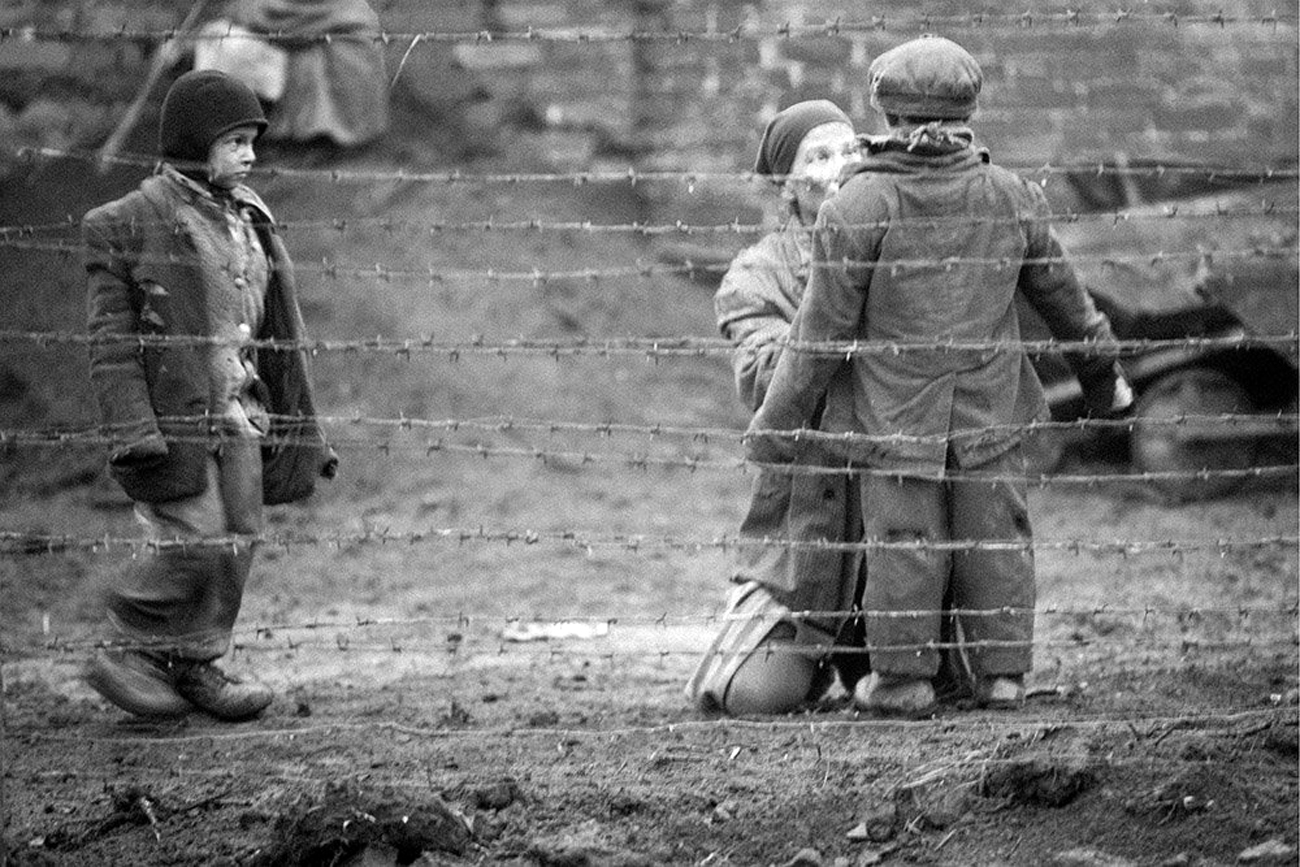
PARADISE (Ray)
Film Movement
Director: Andrey Konchalovsky
Written by: Andrey Konchalovsky, Elena Kiseleva
Cast: Yuliya Vysotskaya, Peter Kurth, Viktor Sukhorukov, Philippe Duquesne, Thomas Darchinger
Screened at: Critics’ link, NYC, 10/2/17
Opens: October 6, 2017
In the final paragraph of Charles Dickens’ “A Tale of Two Cities,” Sidney Carton does a far, far better thing than he had ever done before. Even during the hellish times of the French Revolution’s Reign of Terror, it’s possible for people destined for the guillotine to be saved by a heroic act. A similar situation pops up during the concluding moments of Andrey Konchalvsky’s “Paradise,” which has the original title of “Ray.” Konchalovsky (who was born two days before me), is in his métier with his wartime movie “Paradise.” In 2002 his “House of Fools,” aka “Dom durakov,” takes on the Chechen war when a lack of staff forces residents of a psychiatric institution to fend for themselves.
“Paradise” deals with what could only be called the psychopathic ideology of Nazism, with its belief that Jews must be eliminated from Europe so that the “Aryan race” could construct a paradise on earth. Much of the action takes place in a concentration camp in 1942-44, but this is not a straight, chronological account. Instead, Konchalovsky, using his own script together with that of his co-writer Elena Kiseleva, changes venues and time periods regularly, using 35mm footage and, for a look of authenticity, 16mm stock, all is in black-and-white. He even has the 16mm film show deterioration with time, and what’s more slows the momentum of the epic work frequently as though pitching commercials in the midst of the story to have the major characters talk to the camera, or to us in our theater seats.
Holocaust dramas hardly make rare visits to the cinema, but this one, which uses Russian, French, and German dialogue, is an original, in large part because of the convention of actors’ speaking directly to the camera. What’s more, it’s filled with moments that can bring tears to those in the audience with a sensitivity to the tragic and frankly unbelievable goings-on as Germany, not content with marching throughout Europe and into the Soviet Union, diverts attention from the fighting to destroy the Jewish people.
The principal characters are Olga (Yuliva Vysotskaya), Helmut (Christian Clauss), and Jules (Christian Duquesne), all of whom appear individually to talk to an interviewer or to us in the audience. Olga is a Russian aristocrat who is arrested in occupied France for hiding Jewish children, and is immediately questioned by Jules, a French traitor who works for the Nazis as a police interrogator, responding to Olga’s seductive manner. But Jules is assassinated by the French Resistance before he could do anything to save her. She winds up in a concentration/extermination camp under the cruel Obersturmbannführer Hans Krause (Peter Kurth). She’s in luck even there, as Helmut (Christian Clauss), promoted in the Nazi ranks as auditor for the camp with the authority to condemn officers caught siphoning money and valuables, had been in love with her a decade ago while both were in an Italian resort.
Highlights include Helmut’s interview with Heinrich Himmler (Victor Sukhorukov), his ego and promotion allowing him to consider himself an übermench, much like his pal in the camp, with whom he has sometimes drunken, but always insightful chats. With the war approaching an end, some make plans to flee to Nueva Germania, or Paraguay, but while some are of the opinion that the whole Nazi enterprise is a fool’s paradise, Helmut tells the camera that he has no reason to atone for anything—particularly given his plan to get Olga safely to Switzerland.
We know from many other films about the dreadful conditions of the prisoners but this film concentrates on the women, who are so degraded that as soon as one of their number dies, a fight erupts to seize her boots, cigarettes, or anything else that might make their lives a little better. The film is testament to the folly of thinking that humankind can make a
paradise on earth. Nazism, with its emphasis on racial purity, and Communism, with its belief that people can be forced to submit to absolute class leveling, are extreme experiments that simply have never worked. As the Roman poet Quintus Horatius Flaccus reminded us in 65 B.C, “Naturam expellas furca, tamen usque revenit.” “You can drive nature out with a pitchfork, she will nevertheless come back.
In Russian, German and French with English subtitles.
Unrated. 132 minutes. © Harvey Karten, Member, New York Film Critics Online
Comments, readers? Agree? Disagree? Why?
Story – A-
Acting – B+
Technical- A-
Overall – A-





